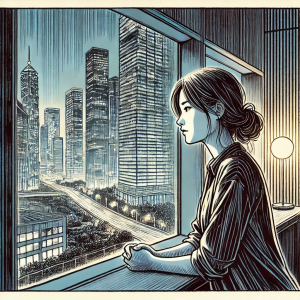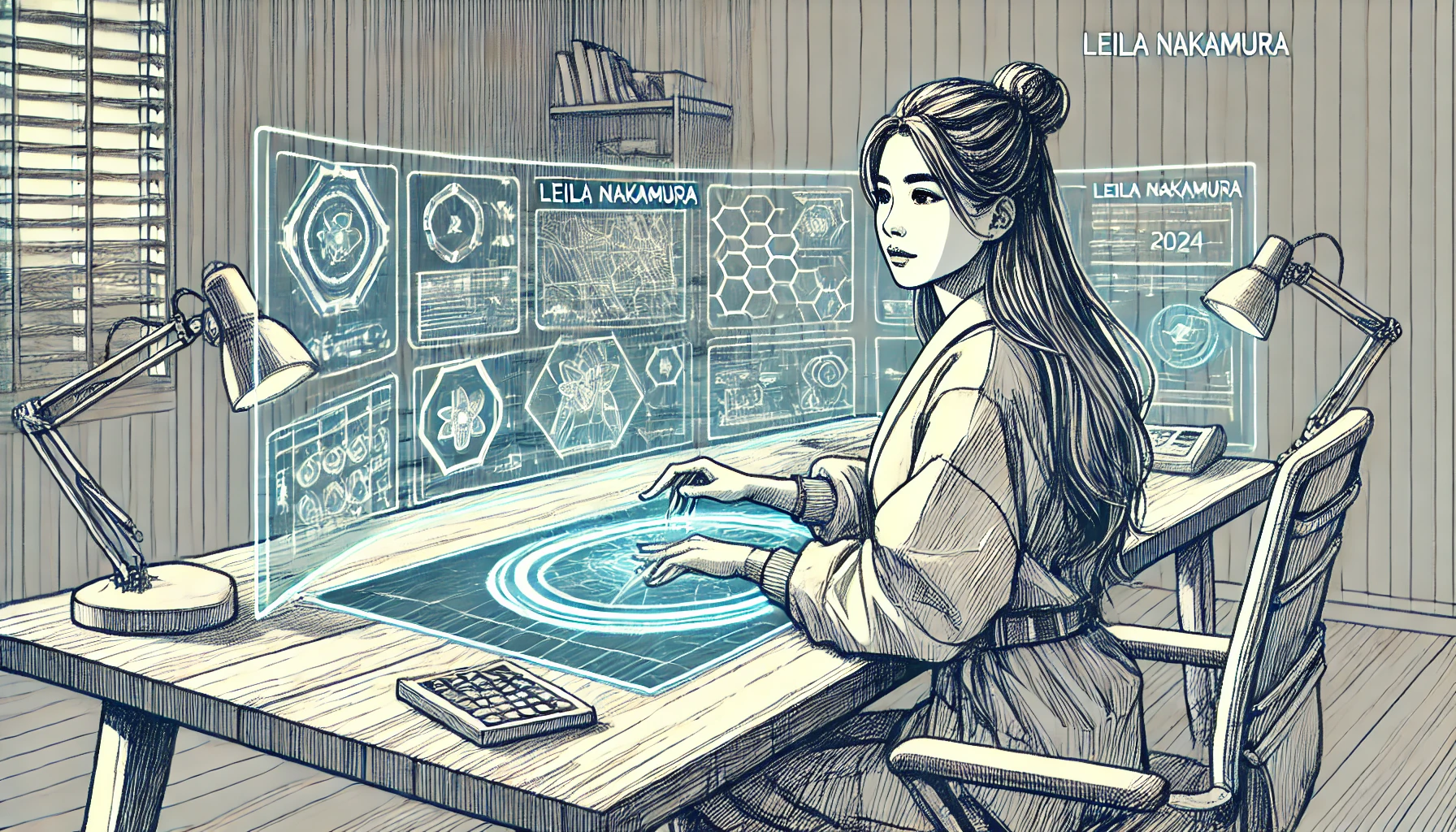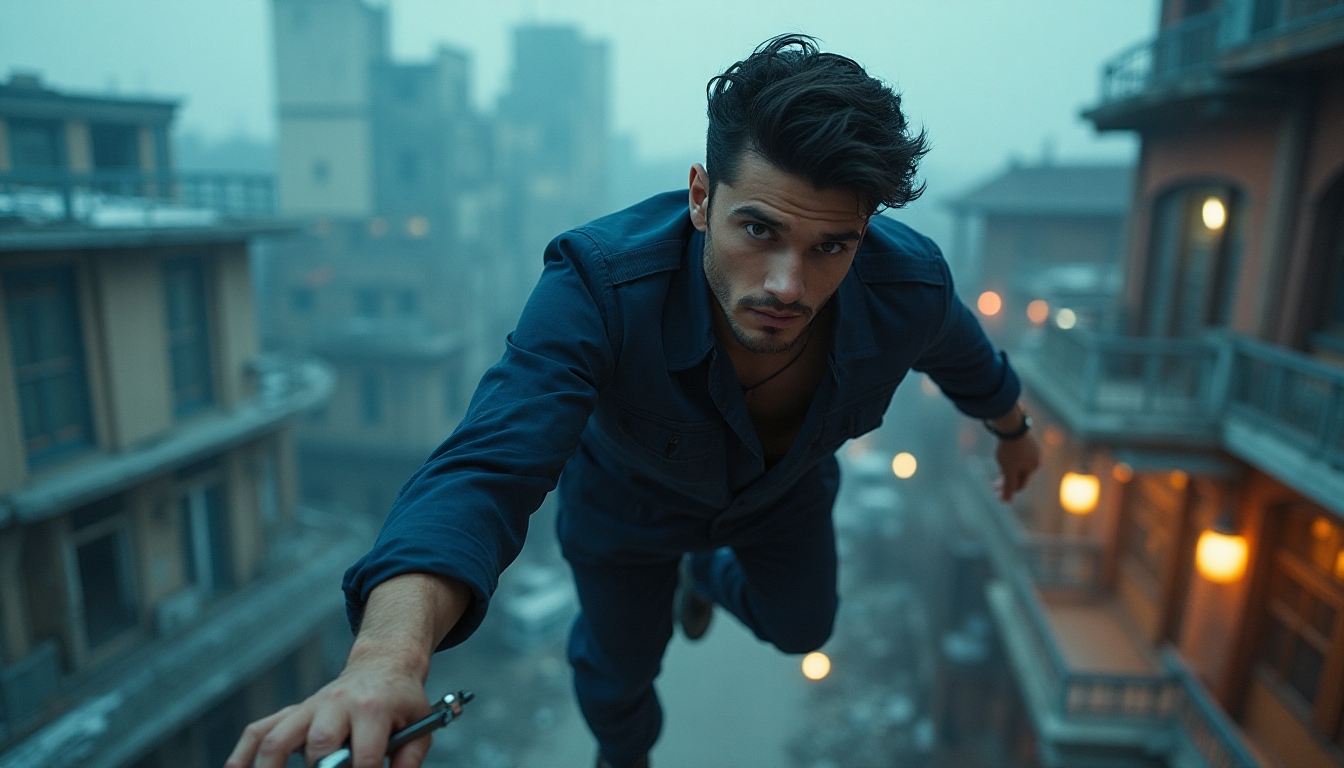In the summer of 2024, the world of creativity was going through a quiet revolution. Not a revolution of paintbrushes or chisels, but one of algorithms and pixels. At the heart of this change was Meta’s Movie Gen, an AI so powerful it could take a simple text description and turn it into a stunning visual masterpiece. Artists, filmmakers, and dreamers of all kinds had found in it a new tool to shape their worlds. But for some, it was more than that—it was a way to find themselves.
Leila Nakamura, an independent filmmaker, was one of the early adopters of Movie Gen. Unlike the big studios that used it to churn out blockbuster trailers, Leila used the AI to explore something deeply personal. She wasn't interested in action sequences or cutting-edge visual effects. For Leila, Movie Gen was her canvas to paint her thoughts, her memories, and the fragments of her imagination that had long stayed hidden.
It began as a simple experiment. After months of overthinking her next documentary project, Leila decided to take a break and simply play with the tool, without the burden of expectation. Sitting alone in her quiet apartment, she typed a prompt that had been lingering in her mind:
"A quiet street at dawn, mist rising from the ground, a single figure standing under a streetlamp, lost in thought."
The image generated on her screen felt… familiar. It was beautifully composed, with the mist curling through the beams of light, the figure barely visible but holding a palpable sense of stillness. Something about the scene stirred a memory in Leila, but she couldn’t place it. Without fully realizing it, she had just started a journey inward—into her own subconscious.
As the days passed, Leila kept returning to Movie Gen, but instead of focusing on her documentary, she found herself using it to create images that reflected her emotions, her memories, and dreams she didn’t even know she had. It became a sort of visual diary. Sometimes, she’d input a direct memory:
"A woman standing on the edge of a cliff, the ocean crashing below, wind whipping her hair."
Other times, she would give the AI more abstract prompts, testing its ability to capture something fleeting, like a feeling:
"A late-night train ride through the city, the lights outside blurry, the hum of the tracks comforting."
Every time, Movie Gen surprised her. The images weren’t just static creations—they were alive. They breathed with the emotion she had buried inside, evoking feelings she hadn’t dealt with in years. Each piece reflected not just what she had described, but the way she felt when she thought of those moments. And each time she saw the results, Leila couldn’t help but be moved.

One evening, as the sun set over the city, Leila typed a new prompt:
"A young girl sitting on a swing, her feet dragging through the sand, looking out over a calm, blue ocean."
The image appeared instantly, and the sight of it hit her like a wave. This was a memory—a cherished one from her childhood. She had forgotten it for years, buried under the stress of adulthood. The swing had been a place of solace, where she had spent countless hours after her family’s long, quiet afternoons at the beach. In that moment, she realized what Movie Gen had given her: not just a way to create visuals, but a way to unlock parts of herself she had long ignored.
That night, Leila sat down to write, not for her documentary, but for herself. She wrote about the swing, the beach, her family, and how distant all of it felt now. She wrote about the peace she had once felt in those moments of solitude, how the wind had carried her thoughts far away, how the sand between her toes had grounded her.
Days turned into weeks, and Leila’s connection with Movie Gen deepened. She began experimenting further, combining the AI’s visual capabilities with her own creativity in ways she had never expected. It was no longer just a tool—it was her partner in exploring her innermost thoughts. She wasn’t using it to impress anyone, or even to make a statement; she was using it to rediscover herself.
Leila had always felt that creativity was about control—about shaping something chaotic into order, about making sense of the world through structure and narrative. But Movie Gen had shown her that creativity could also be about letting go. The AI wasn’t something to be mastered—it was something to collaborate with. It mirrored her emotions, reflected her memories, and, in doing so, allowed her to confront parts of herself that had been long neglected.
The more Leila worked with the AI, the more she began to see herself in the images. It wasn’t just the prompts she gave—it was the way the AI interpreted them, adding layers of meaning that she hadn’t intended but deeply resonated with her.
One rainy afternoon, Leila typed her final prompt for the day:
"A woman sitting by a window, raindrops trickling down the glass, a city reflected in the distance."
The image was hauntingly beautiful. The woman was distant, almost unreachable, but at the same time, there was an intimacy in the way the light from the city caught her face. Leila stared at it for a long time, her mind quiet, her thoughts at peace. It was a moment of reflection—a mirror of her own life.
For the first time in years, Leila felt like she understood herself a little better. She wasn’t just creating art—she was creating herself. Through Movie Gen, she had found a way to express the emotions and memories she couldn’t put into words. The AI had given her the freedom to explore her inner world in a way that no traditional medium ever had.
It wasn’t about the technology anymore. It was about the connection between her and her creations, about the journey inward that the AI had facilitated. Leila smiled to herself, feeling a sense of calm wash over her. In a world obsessed with control and perfection, she had found beauty in letting go.
It's not over...check out the great article that this short story was inspired from: Unlocking the Future of AI Video Creation: Meta’s Movie Gen Revolution
Disclaimer: This article may contain affiliate links. If you click on these links and make a purchase, we may receive a commission at no additional cost to you. Our recommendations and reviews are always independent and objective, aiming to provide you with the best information and resources.
Get Exclusive Stories, Photos, Art & Offers - Subscribe Today!
























Post Comment
You must be logged in to post a comment.